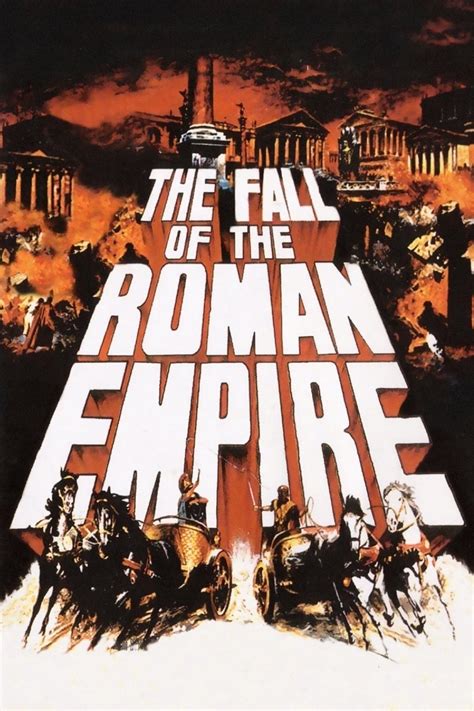The Fall of the Roman Empire
directed by: Anthony Mann, year: 1964
actors: Sophia Loren, Stephen Boyd, Alec Guinness, James Mason, Christopher Plummer
actors: Sophia Loren, Stephen Boyd, Alec Guinness, James Mason, Christopher Plummer

Description:
The Fall of the Roman Empire is an epic historical drama that explores the tumultuous period of Roman history leading to the empire's decline. The film focuses on the reign of Emperor Marcus Aurelius and the subsequent power struggles following his death. With grand set pieces and a sweeping narrative, it delves into themes of political intrigue, loyalty, and betrayal. Featuring a stellar cast, the film captures the essence and magnitude of the Roman Empire's challenges and eventual downfall.Keywords:
Civilization, Historical, Drama, Epic, Roman Empire, Political IntrigueWhat caused the downfall of the Roman Empire?
"The Fall of the Roman Empire," a 1964 film, depicts the factors contributing to the decline of the Roman Empire. Key causes include internal strife, political corruption, economic troubles, and military overreach. The film illustrates the struggles of leadership, the impact of barbarian invasions, and the weakening of imperial authority. It emphasizes how these issues, compounded by social decay and loss of civic pride, led to the empire's fragmentation and eventual collapse, reflecting historical interpretations of Rome's decline.
What did Jesus say about the Roman Empire?
In the context of the film "The Fall of the Roman Empire," Jesus is not directly quoted, but his teachings often emphasize themes of love, forgiveness, and the spiritual over the temporal. Historically, Jesus lived during the Roman Empire and spoke about the Kingdom of God, which contrasted with earthly kingdoms. He taught that one should "render unto Caesar the things that are Caesar's, and unto God the things that are God's," highlighting the distinction between civic duty and spiritual devotion. This perspective challenges the authority and power of empires.
Why did Christianity cause the fall of the Roman empire?
In "The Fall of the Roman Empire," Christianity is portrayed as a factor in the empire's decline due to its shift in focus from civic duty to spiritual salvation. The rise of Christianity contributed to internal divisions and weakened traditional Roman values, leading to a decline in civic participation and loyalty to the empire. Additionally, the church's growing power often conflicted with imperial authority. This shift in societal priorities, along with external pressures and economic troubles, is depicted as part of the complex reasons behind the empire's fall.
What are 5 facts about the fall of Rome?
"The Fall of the Roman Empire" is a historical epic that reflects the larger themes of Rome's decline. Here are five facts about the fall of Rome:
1. **Political Instability**: The Roman Empire faced frequent leadership changes and civil wars, weakening central authority.
2. **Economic Decline**: Heavy taxation, reliance on slave labor, and inflation led to economic troubles.
3. **Barbarian Invasions**: Various tribes, including the Visigoths and Vandals, invaded Roman territories, contributing to the empire's collapse.
4. **Military Overextension**: The empire expanded too far, straining resources and troops.
5. **Cultural Decay**: A decline in civic pride and social cohesion undermined Roman unity.
Explore More Categories: